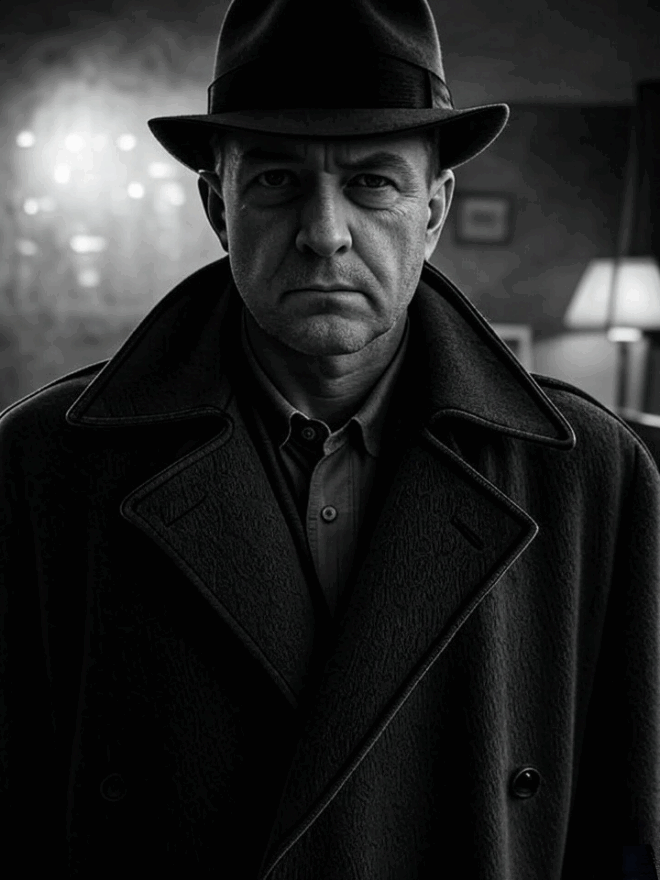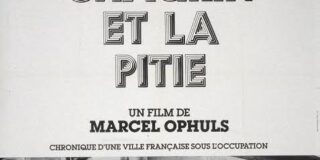
When the Soviet Union collapsed in 1991, the implosion seemed to signal the end of an era for espionage fiction. For decades, the USSR had provided the genre with its most reliable villains. With a history of espionage stretching back to the czars and an intelligence agency – the KGB – that was both feared and mythologised, the Soviet Union was the perfect antagonist. The KGB’s operatives penetrated the highest corridors of power in London and Washington, orchestrated defections and stole atomic secrets, creating a real-world drama that fuelled countless novels. Writers like John le Carré, who arguably invented the modern Cold War spy novel, crafted morally complex tales where spies were not just operatives, but existential figures grappling with loyalty, betrayal and the human cost of their work. With the USSR’s dissolution, the genre appeared to lose its raison d’être. Writers turned to new theatres – Africa, Panama, the Caucasus – but none matched the dramatic fertility of Cold War Russia or the mythic stature of the KGB.
Yet, the Cold War’s pulse never fully stopped. Russia, though diminished in economic and military power, retained espionage as a core element of its identity. The KGB, rebranded as the FSB and SVR, continued to make mischief, often with theatrical flair – poisonings, cyberattacks and election meddling. The Cold War, though on life support, lingered in both the cultural imagination and the real-world actions of Russian intelligence. Vladimir Putin, a former KGB officer, played a pivotal role in keeping this dynamic alive, projecting Russian power through espionage and hybrid warfare. However, his invasion of Ukraine in 2022 marked a seismic shift. The Cold War, as a contained, shadow conflict of spies and proxies, gave way to a hot war of tanks and missiles. This new era of East-West relations, unpredictable and unbound by old rules, raises profound questions about the future of espionage fiction. If the Cold War is truly over, why do its stories still captivate us? And what might the genre become in a world where villains are no longer shadowy operatives but overt aggressors?
The Cold War’s Unique Appeal: Moral Ambiguity and Human Drama
The enduring appeal of Cold War espionage fiction lies in its ability to explore the grey, morally ambiguous space between ideological extremes. Unlike the clear-cut heroics of World War II narratives or the techno-thrillers that followed, Cold War novels thrive on complexity. Their protagonists – often disillusioned, flawed and caught in personal crises – navigate a world where loyalties are strained and ethical compromises are routine. Le Carré’s George Smiley, for instance, is not a dashing James Bond but a quiet, bespectacled bureaucrat whose brilliance is matched by his weariness. In Tinker, Tailor, Soldier, Spy (1974), Smiley hunts a Soviet mole within British intelligence, but the novel’s true tension lies in its exploration of betrayal – not just of country, but of friendships, ideals and self. This moral ambiguity resonates because it mirrors the human condition: the struggle to act rightly in a world where right and wrong are rarely clear.
The Cold War gave spies a prominence and complexity they would never regain. They were the era’s proxy warriors, risking capture or death in a conflict that was as much ideological as it was geopolitical. Unlike modern espionage, which often relies on drones, satellites and cyberattacks, Cold War spying was intensely personal. Tradecraft – dead letter drops, coded messages, clandestine meetings – was primitive by today’s standards but inherently dramatic. At the former Stasi headquarters in Berlin, now a museum, the bulky listening devices and typewriters on display seem almost quaint, like artefacts from a bygone era. Yet, for novelists, this simplicity is a strength. Cold War tech is accessible and character-driven, allowing writers to focus on human interactions rather than arcane technical processes. A modern cyberattack may be devastating, but its mechanics are opaque to most readers. In contrast, a tense exchange of briefcases in a foggy East Berlin alley is universally gripping.
Ideology is another key to the genre’s richness. Cold War spies were often motivated by conviction, not greed. Many of the era’s most notorious spies – Kim Philby, Klaus Fuchs, the Cambridge Five – betrayed their countries out of a belief in communism as a higher cause. Recruited in the 1930s, when the Soviet Union appeared to some as a bulwark against fascism and capitalism’s excesses, these spies saw their actions as a form of secular faith. Philby, who defected to Moscow in 1963, remained loyal to the KGB until his death, even as the Soviet system crumbled. Fuchs, who passed atomic secrets to the Soviets, defended communist dogma even as East Germany became a surveillance state. Their stories are dramatic because they grapple with profound questions: What does it mean to betray? When does loyalty to an ideal outweigh loyalty to a nation? Fiction excels at exploring such ambiguities, allowing writers to speculate on the inner lives of figures whose true thoughts remain elusive.
The Cold War’s ideological stakes also created a unique kind of drama: the crisis of faith. Spies who began as idealists often faced disillusionment as the Soviet Union’s flaws – repression, purges, stagnation – became undeniable. Yet, many, like Philby, never recanted, raising questions about the nature of belief. Were they true believers or were they bound by pride, fear or coercion? Novels like The Spy Who Came in from the Cold (1963) capture this tension, portraying spies as tragic figures caught between conviction and doubt. This focus on ideology distinguishes Cold War fiction from later espionage narratives, where motives are often mercenary or personal. The stakes feel higher when characters act out of principle, even a misguided one, making their betrayals and sacrifices more poignant.
The Cold War as a Literary Tradition
Cold War espionage fiction benefits from its place in a prestigious literary tradition. Writers like Graham Greene, Ian Fleming and John le Carré elevated the genre, blending pulp thrills with philosophical depth. Greene’s The Quiet American (1955) and The Human Factor (1978) explore the personal toll of espionage, while le Carré’s novels, such as The Spy Who Came in from the Cold, dissect the cynicism and moral compromises of the intelligence world. These works are not just thrillers but meditations on power, loyalty and the human cost of ideological conflict. For contemporary writers, engaging with this tradition is an opportunity to stand alongside literary giants while examining how past conflicts echo in the present.
The genre’s historical proximity adds to its appeal. The Cold War is recent enough to feel familiar but distant enough to allow for reflection. Unlike ancient or medieval history, its events are well-documented and its cultural artefacts – films like Dr. Strangelove (1964), music like Billy Joel’s “Leningrad” (1989) and propaganda posters – are still part of our collective memory. For writers who grew up during the era, the Cold War is a touchstone, a world of bomb shelters, Berlin Wall checkpoints and mutually assured destruction. Yet, this is not nostalgia for a simpler time. The Cold War was anything but comforting, marked by the constant threat of nuclear annihilation and the paranoia of surveillance states. Instead, the genre’s appeal lies in its ability to revisit a known devil – a conflict whose stakes and dynamics are understood – while offering fresh perspectives on its absurdities and failures.
Revisionist history plays a significant role. Fiction allows writers to reimagine the Cold War, correcting over-simplifications or exploring overlooked perspectives. For example, Viet Thanh Nguyen’s The Sympathiser (2015) shifts the focus to Vietnam, examining the Cold War’s impact on non-Western nations. Joseph Kanon’s The Berlin Exchange (2022) revisits classic settings to probe new moral dilemmas, such as the ethics of prisoner swaps. By reinterpreting the past, these works help us understand the present, where echoes of Cold War tensions – Russian aggression, ideological polarisation – persist. The genre also allows writers to address the era’s absurdities, such as the bureaucratic inefficiencies of intelligence agencies or the paranoia that fuelled witch hunts like McCarthyism. These elements, recognised even at the time, add a layer of irony that enriches the storytelling.
The Cold War’s End and the Genre’s Future
The invasion of Ukraine in 2022 marked a definitive end to the Cold War as a contained, shadow conflict. Putin’s actions transformed Russia from a cunning adversary into an overt aggressor, shattering the old rules of espionage and diplomacy. The war has made Central and Eastern Europe a literal battlefield, not a chessboard for spies. Agents are no longer pawns in a game of cat-and-mouse but operatives in a chaotic, high-stakes conflict where traditional tradecraft seems almost irrelevant. This shift poses a challenge for espionage fiction. The genre thrived on the Cold War’s restraint – the unspoken agreement that direct confrontation was too costly. In a world of open warfare, where tanks roll and cities burn, the subtle intrigues of le Carré’s world feel out of place.
The war has also altered the role of espionage itself. Modern Russian intelligence operations, while still active, are often over-shadowed by overt military actions and hybrid warfare tactics like disinformation campaigns. The FSB and SVR continue to target Western institutions, but their methods – hacking, troll farms and assassinations – lack the romantic allure of Cold War tradecraft. For novelists, this presents a narrative challenge: how to make modern espionage compelling when it is less about human drama and more about invisible, technical processes. Cyberattacks, for instance, are difficult to dramatise without resorting to clichés or technobabble. The genre must find ways to humanise these new forms of conflict, focusing on the individuals behind the screens or the victims of digital warfare.
Despite these challenges, the Cold War’s grip on our imagination endures. Its stories resonate because they capture a universal human struggle: the search for meaning in a world of competing loyalties and moral compromises. The genre’s focus on character and ideology, rather than technology or spectacle, ensures its relevance, even as the geopolitical landscape changes. However, the future of espionage fiction will likely look different. As Russia’s actions redefine East-West relations, the genre may shift its focus to new adversaries and theatres. China, with its growing global influence and sophisticated intelligence operations, is an obvious candidate. Like the Soviet Union, China offers a rich, adversarial backdrop – a society with its own history of espionage and a determination to shape the 21st century. Novels like Tess Gerritsen’s The Spy Coast (2023) and upcoming works exploring US-China tensions suggest the genre is already pivoting.
Africa and the Middle East, too, offer fertile ground. These regions, long affected by Cold War proxy conflicts, are now arenas for new great-power rivalries. Writers like Paul Vidich, whose novels explore post-Cold War espionage, are beginning to chart these territories. For example, Vidich’s The Matchmaker (2022) examines the murky world of NATO’s post-Cold War operations, hinting at the potential for stories set in less Eurocentric locales. These regions, with their complex histories and ongoing conflicts, provide opportunities to explore themes of betrayal, loyalty and power in new contexts. A spy navigating the factionalism of a Middle Eastern conflict or the resource wars of sub-Saharan Africa could offer the same moral complexity as a Cold War operative in Berlin.
Cyber-espionage, while less inherently dramatic than human intelligence, will also play a larger role. The challenge for writers is to make the invisible visible – perhaps by focusing on the personal toll of digital warfare or the ethical dilemmas faced by hackers and analysts. Novels like Neal Stephenson’s Cryptonomicon (1999) and Ellen Ullman’s The Bug (2003), though not traditional spy fiction, show how technology-driven stories can retain human drama. Future espionage fiction may blend traditional tradecraft with digital elements, creating hybrid narratives that reflect the complexity of modern intelligence work.
The genre’s Eurocentrism, a hallmark of its Cold War roots, is also likely to fade. The Cold War was largely a contest between Western and Eastern blocs, with Europe as the central theatre. Today’s geopolitical landscape is more multipolar, with Asia, Africa and Latin America playing larger roles. Espionage fiction will need to reflect this shift, incorporating diverse perspectives and settings. Writers from non-Western backgrounds, like Nguyen, are already leading the way and their influence will likely grow. This diversification could usher in a new golden age for the genre, as it taps into untold stories and fresh conflicts.
The Role of Fiction in a Post-Cold War World
Espionage fiction’s ability to speculate and empathise is one of its greatest strengths. By imagining the inner lives of spies, traitors and idealists, novelists help us explore our own moral boundaries. The Cold War, with its clear ideological divide, provided a perfect canvas for this exploration. Today’s world, with its messier conflicts and less defined ideologies, presents new challenges but also new opportunities. Fiction can help us make sense of a world where adversaries are not just states but non-state actors, corporations and algorithms. It can illuminate the human cost of conflicts that are often abstract or distant, from cyberattacks to proxy wars.
The genre also serves as a historical lens, allowing us to revisit the Cold War not as settled history but as a living influence. The mistakes of that era – miscalculations, overreactions and missed opportunities – offer lessons for today’s policymakers and citizens. By reimagining the past, espionage fiction can warn against repeating it, whether through unchecked nationalism, ideological extremism or the erosion of trust. At the same time, the genre’s focus on individual agency reminds us that history is shaped by people, not just systems. A single spy, acting out of conviction or doubt, can alter the course of events – a theme as relevant now as it was in 1963.
Conclusion: A Genre in Transition
Cold War espionage fiction remains a powerful lens for exploring human conflict, not because it romanticises the past, but because it confronts timeless questions of loyalty, betrayal and conviction. Its morally ambiguous heroes, primitive yet dramatic tradecraft and ideological stakes make it uniquely compelling. The genre’s literary tradition, from Greene to le Carré, ensures its prestige, while its historical proximity allows for reflection and revision. Yet, the invasion of Ukraine has closed the chapter on the Cold War as we knew it, forcing espionage fiction to evolve. Whether it turns to China, Africa or the digital frontier, the genre will need to find new ways to capture the human drama that made Cold War stories so enduring.
As Joseph Kanon suggests, the future of espionage fiction depends on “what the Russians do next.” But it also depends on writers’ ability to adapt, to find new villains and conflicts that resonate as deeply as the Cold War once did. The golden age of moles and double agents may be over, but the need for stories that probe the moral complexities of a divided world remains. In this sense, espionage fiction is not just a relic of the Cold War but a living tradition, ready to confront the uncertainties of a new era. By embracing new settings, technologies and perspectives, the genre can continue to captivate readers, offering not just thrills but insights into the human condition in a world where the lines between friend and foe are blurrier than ever.


